By Yumi Unita. Released in Japan as “Usagi Drop” by Shodensha, serialized in the magazine Feel Young. Released in North America by Yen Press.
This review contains spoilers for this volume. Please avoid discussing future Bunny Drop volumes in the comments.
So, right around the time Bunny Drop 3 was released in North America, you may have noticed a very quiet panic on the part of those following the Japanese release, as many fans tried to freak out while simultaneously not spoiling anything. Which is sort of impossible. I mean, what do you say? “You know that series on heartwarming parenting you read? Aaaaagh! But I can’t say why.” You know, the mind can only go to a few obvious places. I haven’t seen Vol. 9 yet, which should be out here in late summer, but I have a sneaking suspicion I know how things are going to turn out. Let’s delve.
When we last left Rin, she was pondering her future. And more importantly, pondering a future without Daikichi in it. Meanwhile, the two relationships that the reader had maybe hoped might happen – Rin and Kouki, and Daikichi and Kouki’s mom – are both torpedoed big time, and indeed Kouki’s mother is getting remarried to someone else in this volume. Kouki is trying to handle this with aplomb, but only partly succeeding – this time, rather than throw a fit, he simply flees to Rin’s house. But this is the typical reaction of a son. Rin doesn’t have to deal with something like that – Daikichi’s social life is still as empty as ever – but she’s still pondering her future.
She’s also getting into fights with Daikichi, and chafing rather uncomfortably at his continued parenting of her. It’s clear that she wants to be free of that role. They get into a fight regarding her contact with her mother (which is quietly resolved here, with Rin basically settling things in her heart) and her mother’s new baby, something she kept from Daikichi as she knew he’d freak out. Which he does. These two still clearly love each other deeply, but Rin is growing up, and they are moving into previously untouched arenas.
Which brings us to Rin’s own love life. Honestly, Rin’s realization of who she loves isn’t as interesting to me as Rin’s complete horror when trying to date someone else. Her attempted date with Yasuhara is the best part of the book to me, a trainwreck that she doesn’t want but can’t quite get out of. Rin is so passive much of the time that it’s great to see her struggling, and her facial expressions here are a stitch. But of course, Rin has realized who she’s in love with. And is dealing with that fact that it’s, well, impossible. And by the end of the volume, Kouki is pretty sure about it too, and (confronted once again with a problem he can’t really do much about) he flees.
The topic is being handled maturely, and it’s not meant to be saucy or titillating. But with all its ups and downs, what the reader takes away from Bunny Drop 8 is “Oh crap, Rin’s in love with her adopted father!” (Anna Russell voice) She’s his aunt, by the way. A story that began with an unconventional family forming looks like it may end (Vol. 9 is the final ‘story’ volume, though there is a Vol. 10 with short stories from across Rin’s life) with yet another unconventional family. And I’m pretty sure we all feel more uncomfortable about it than the author intended. But let’s see what the next book brings.
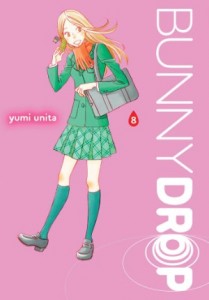
 SEAN: I feel bad not picking the elite, first of its kind groundbreaking gay manga, but I’m not going to be reading it, as I’m not an audience for explicit gay bondage no matter how well put together it is. So my pick of the week is the digital release of
SEAN: I feel bad not picking the elite, first of its kind groundbreaking gay manga, but I’m not going to be reading it, as I’m not an audience for explicit gay bondage no matter how well put together it is. So my pick of the week is the digital release of 








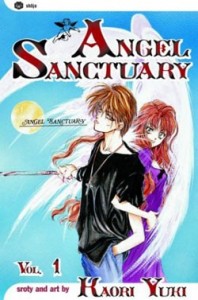
 MJ: The
MJ: The 






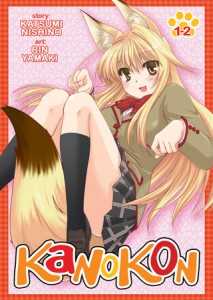



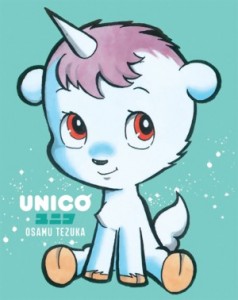
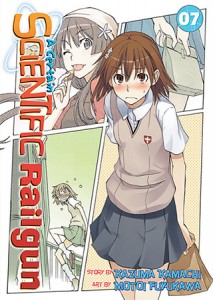





 MICHELLE: I’ll definitely be picking up a few things
MICHELLE: I’ll definitely be picking up a few things